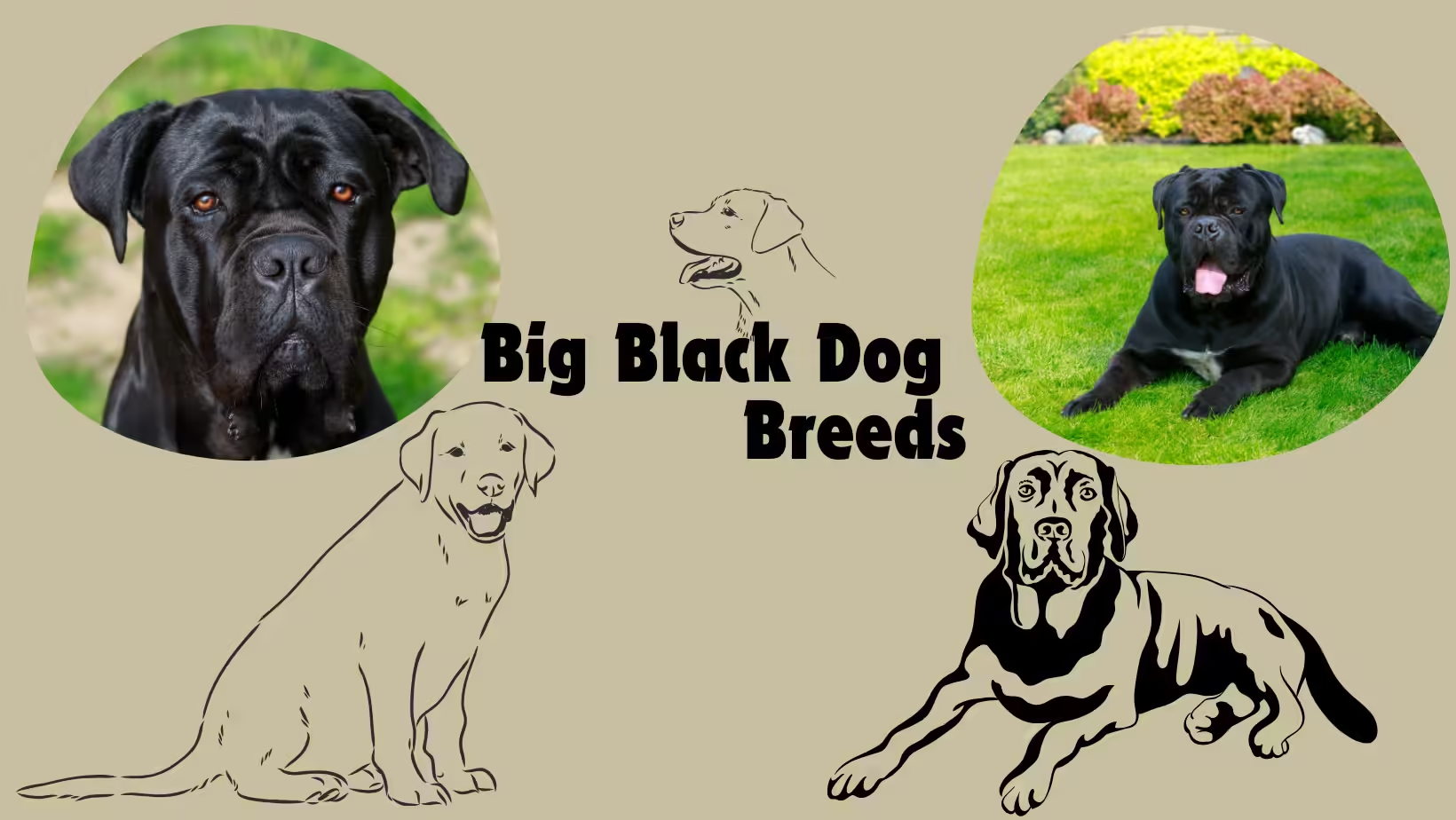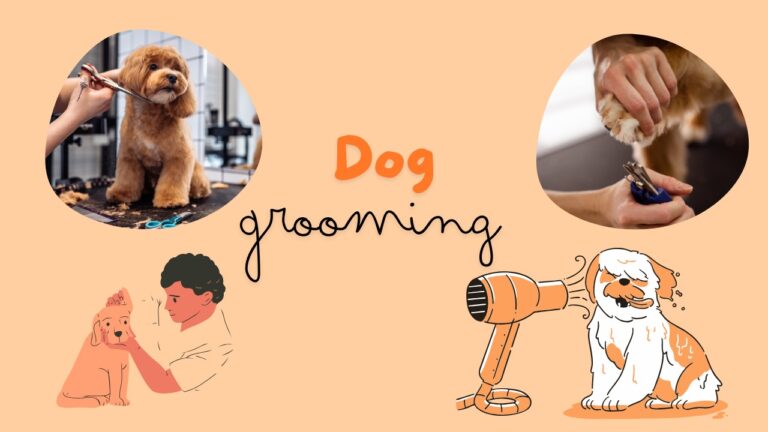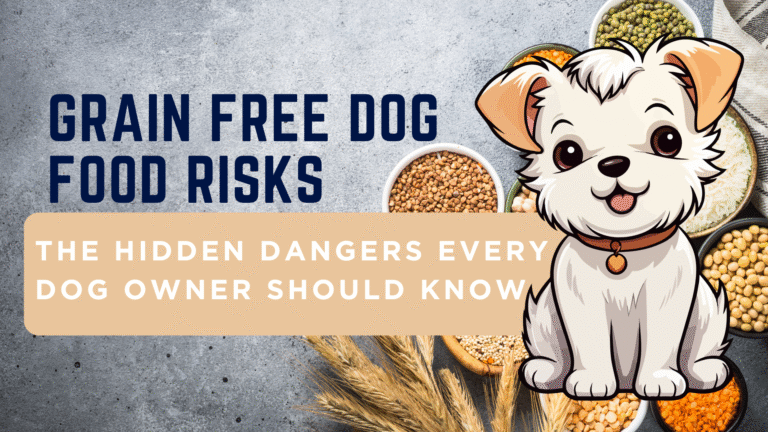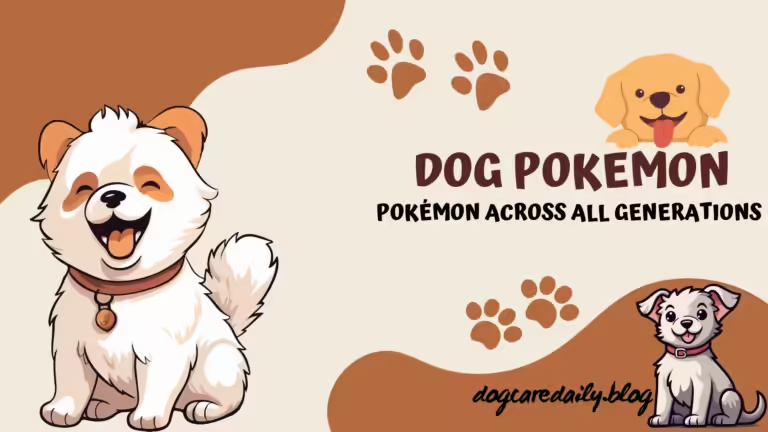The Ultimate Guide to Big Black Dog Breeds: Traits, Care, and Best Choices
Big black dog breeds have some distinct characteristics, including the size and appearance of a breed, which often result in attention because of its powerful presence and gentle nature. From being protectors and companions to their more visible physical characteristics, each of these breeds has a unique characteristic appeal. Big black dogs come from an incredibly diverse range of working, herding, and sporting backgrounds, and may be well-suited to a variety of different living situations and lifestyles. Whether you want a big family pet, a robust guard dog, or just an outdoorsman’s faithful companion, big black dog breeds have much to give.
Why Choose a Big Black Dog?
For the large breed dog lover, black-coated dogs add an air of distinction and strength. These breeds, aside from their dramatic appearance, are usually also well-balanced in temperaments, making them very suitable for protection and companionship as well. Big black dogs are often selected because they are loyal, intelligent, and have a very close bond with their owners, but these characteristics bring their own set of requirements from space and exercise to regular grooming.
Top Big Black Dog Breeds and Their Traits
1. Great Dane
- Appearance: One of the tallest dog breeds, the Danes come in a lot of colors, with the favorite being solid black. However, their large and slim bodies make them elegant with power.
- Personality: Known to be gentle giants, the Great Danes are sweet, loyal, and tender, making them the ideal pet for a family. They get along with the children and are normally a calm breed, but size is a major concern; therefore, handling needs a more experienced owner.
- Care Needs: Great Danes don’t live so long due to their huge size, and normally they are 7–10 years old. They should be given modest exercise and regular check-ups against possible health issues that can sometimes be hip dysplasia or heart issues.
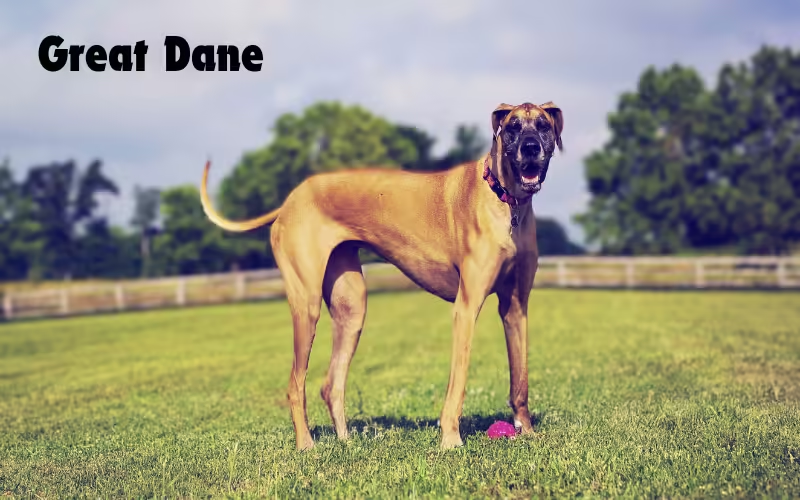
2. Newfoundland
- Appearance: Newfoundlands are massive dogs with thick black fur that can also occur in brown or gray. Their broad heads and webbed feet well accommodate both swimming and even really cold climates.
- Personality: Newfoundlands are reported to be gentle and docile, a reputation highly contributed by their kindness and patience toward children. Being historically used as working dogs, they possess a robust work ethic and are naturally protective.
- Care Needs: Newfoundlands are heavy shedders because of their dense coat and enjoy seasonal shedding. They also need a lot of exercise since their thick fur creates the risk of overheating. In particular, they enjoy cooler climates.
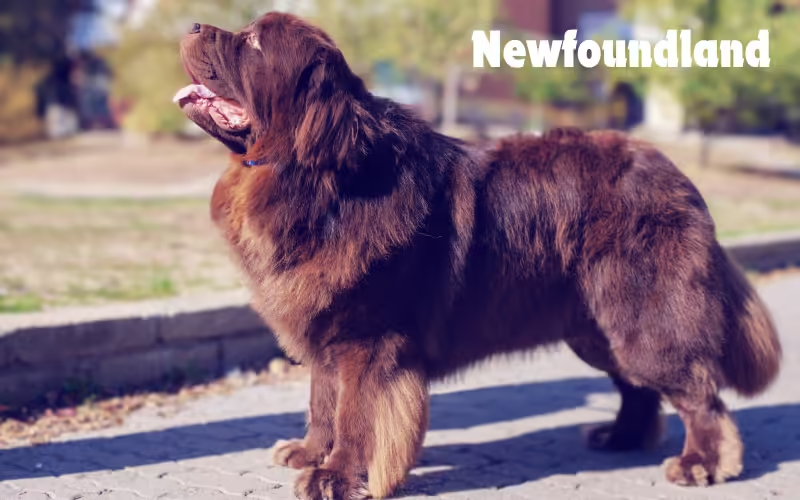
3. Black German Shepherd
- Appearance: The black German Shepherd is an athletic and muscular variant of the German Shepherd breed with a strong, solid black coat. It is known for intense and intelligent expressions. It is highly agile and athletic.
- Personality: Black German Shepherds are known to be highly trainable and intelligent, making them great choices for police or military work. They are naturally protective and loyal, thus making great guard dogs and family companions.
- Care Needs: A black German Shepherd features a double thick coat, which must be brushed on a regular basis to avoid excessive shedding. They demand intense training and much mental stimulation, or else they get bored or anxious because of the lack of sufficient activity.
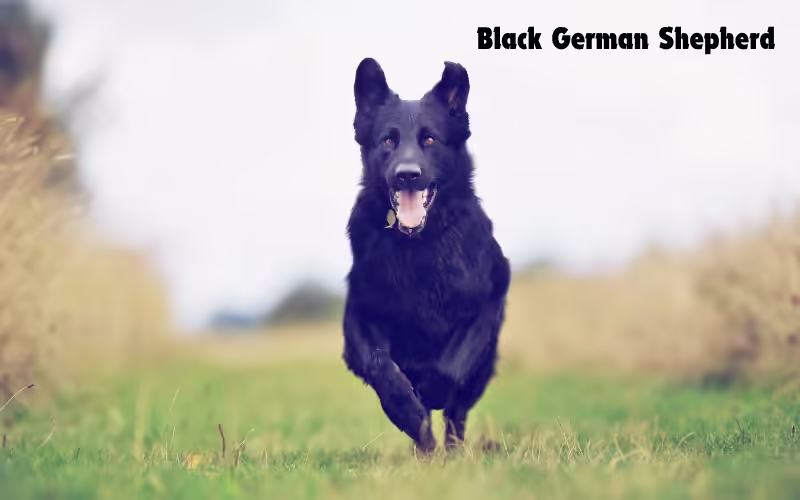
4. Rottweiler
- Appearance: Rottweilers are identifiable with their markings black and tan, broad head and muscle-bound frame. They happen to be one of the most powerful and robust, developed in the light of the protective instincts.
- Personality: Rottweilers are very loyal, so they are protective yet loving family companions. They may be suspicious of strangers but friendly and generous with those they regard.
- Care Needs: Rottweilers need an experienced owner with a strong hand as well as solid training. They must also be exercised regularly to avoid excessive idleness and thrive on mental activities or work.

5. Black Russian Terrier
- Appearance: Black Russian Terrier is one of the rarest breeds and sports a curly, dense black coat and robust, well-balanced frame. They were bred originally as guard dogs, hence these dogs excel in their presence and strength.
- Personality: Black Russian Terriers are largely known for their courage and composure and these are highly trainable dogs. They are honest to their family and prevent any foreigner with their cautious and alert nature.
- Care Needs: Due to their thick coats, they require constant grooming. They must be trained properly all the time. They thrive on physical as well as mental activities.
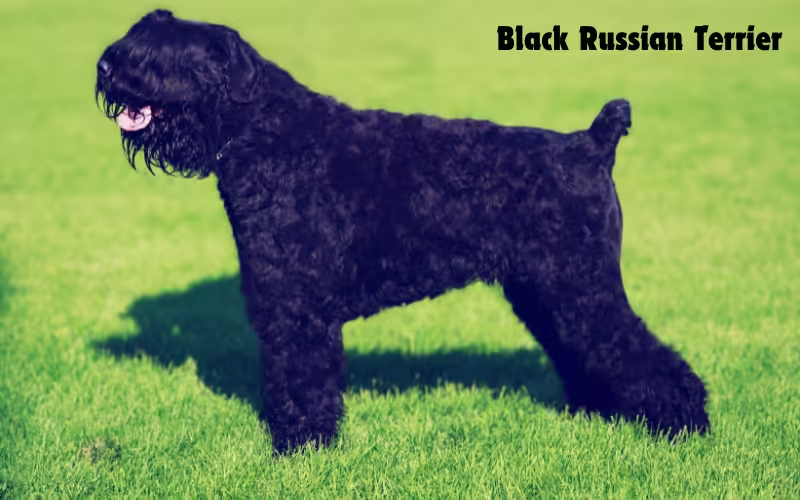
6. Cane Corso
- Appearance: There is something very confident and powerful about this sleek, glossy black short coat with a strong muscular build. Such large heads and expressive eyes give them a threatening and noble look simultaneously.
- Personality: The Cane Corso is a loyal and protective dog, a devoted family dog with great guarding ability. They are intelligent and generally calm but must be socialized to develop a stable temperament.
- Care Needs: The Cane Corsos require moderate exercise, structured training, and a balanced diet. Due to their size and protective nature, they require an experienced owner who can provide leadership.
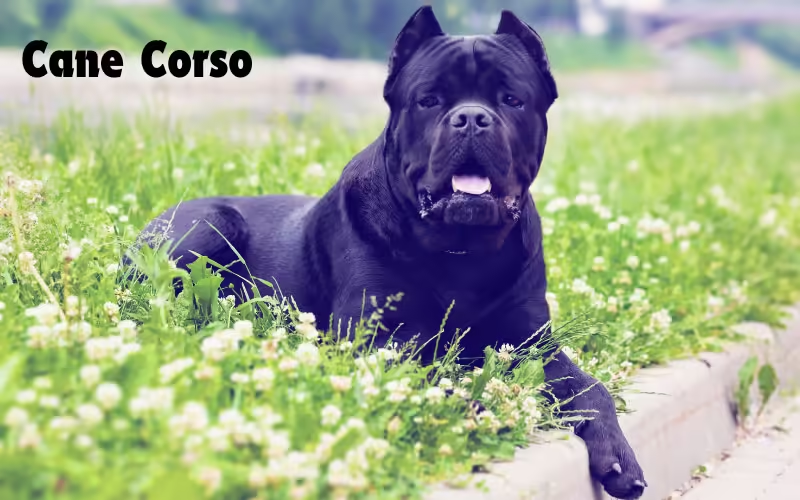
Selecting the Right Big Black Dog Breed for Your Home
Selection of the big black dog breed depends on lifestyle, size of your house, and family dynamics. Some breeds are suited to large houses or an outdoor setup, while others can actually thrive in apartments if they receive enough exercise. Many giant black dog breeds require owners experienced enough to understand the value of training and confines. Two of these are the Rottweiler and Cane Corso. Others are Newfoundlands and Great Danes, which are usually gentle and very family-friendly with small children.
Health Considerations for Large Black Dog Breeds
Large black dog breeds sometimes suffer from health conditions such as hip dysplasia, heart disease, and arthritis. They mostly have joint problems due to their size and may not be very mobile as they grow older. Regular vet checks, good diets, and sometimes prescribed joint supplements by veterinarians may help control these conditions. Owners must also watch their dogs’ weight, since excess weight worsens joint and heart problems.
Grooming and Maintenance of Big Black Dogs
- Coat Care: Black coats are known to show dust and debris easily, hence a more frequent grooming of such coats is advisable. Thicker, water-resistant coats such as those of the Newfoundland require constant brushing while shorter-haired breeds such as Cane Corso are handy with occasional brushing.
- Exercise: Big breeds need frequent exercise to maintain the muscular strength and prevent behavioral disorders. Some of the activities given are walking, trekking, and even swimming for bigger breeds like the Newfoundland.
- Diet: Black big dogs require high proteins in diets to maintain muscular masses. The specific diet should focus on joint health and preventing unhealthy weights in such breeds that have a weakness of hip dysplasia.
Myths and Misconceptions About Big Black Dogs
1. Big black dogs are always aggressive.
- This is a myth created from the fact that certain breeds of dogs are often used as guard dogs; however, an individual and breeds can differ in terms of temperament. If large black dogs receive proper training and socialization, they could be gentle and nice. 2. “Large black dogs are tougher to train.”
2. Large black dogs are harder to train.
- Actually, most giant dog breeds are highly intelligent and can learn quite easily. Even their training can be done according to your will since certain breeds like German Shepherd or Black Russian Terrier take very few commands and learn quick too.
3. They don’t live as long as smaller dogs.
- Smaller breeds do indeed outlive the larger breeds because they usually have more extended lifespans; proper care, diet, and exercise may also make your large breed live much longer.
FAQs
Which big black dog breed is best for families?
Newfoundlands are popular family dogs since they have a very gentle and friendly temperament, whereas Great Danes are extremely affectionate and always liked by children.
Are big black dog breeds more aggressive?
No. As with any breed, aggression cannot be assumed. However, big black dogs, whether male or female, are most of the time very calm, affectionate, and protective.
Do big black dogs require a lot of space?
Yes, many large breeds do well with space to run, but they can thrive in smaller living situations with plenty of exercise.
How much does it cost to care for a big black dog?
A large dog will be more expensive in terms of pet food and veterinary costs. Medical needs such as joint supplements can also add up.
Do these breeds require special grooming?
The needs of grooming vary with the type of coat; for instance, long-haired breeds such as the Newfoundlands need brushing quite frequently, but short haired breeds require very low maintenance.
Conclusion
Large black dog breeds are just the best combination of loyalty, protection, and companionship. Some are soft and gentle, while others are full of muscle and strength, giving, for example, Newfoundlands and Cane Corsos that inspiring breeders can have capable caregivers create relationship communities with the cherished family member.

